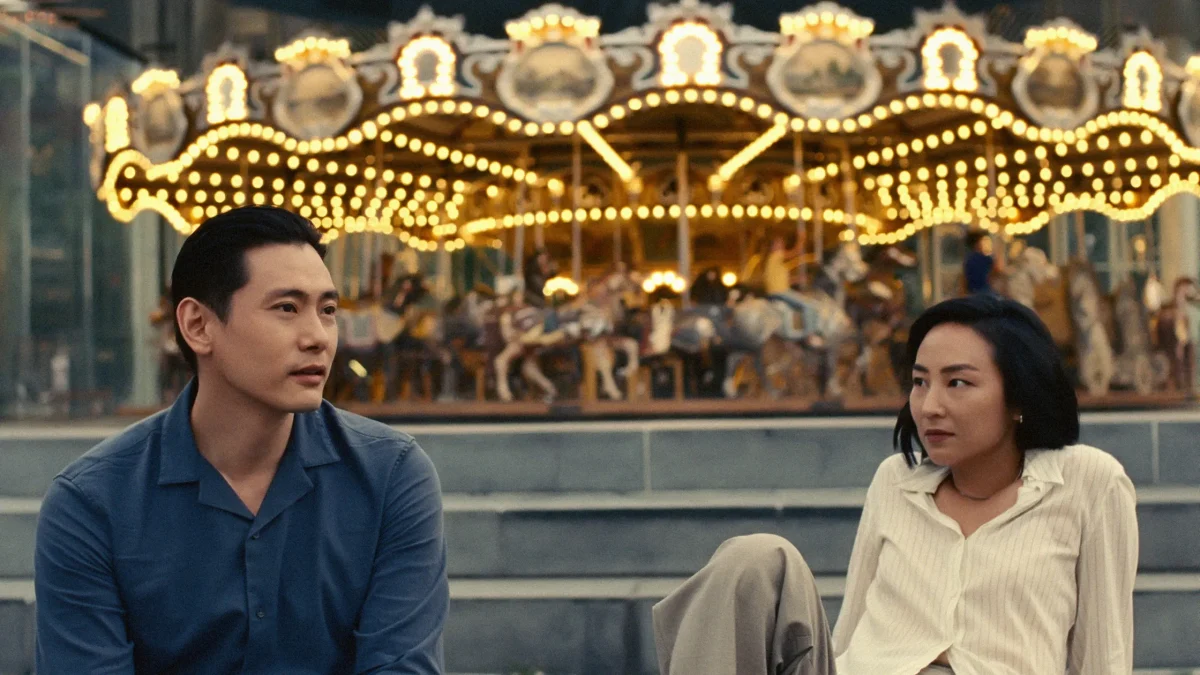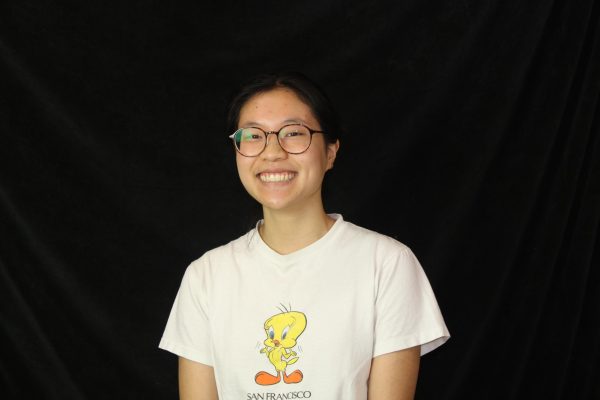Minor spoilers included in this review
A Korean woman sits between two men at a bar one evening in New York City. She faces one of them, chatting and smiling, occasionally turning back to the other man, seemingly to translate. Their actual conversation is dubbed over by narration from two onlookers who speculate about the relationship between the three. Are they lovers? Siblings? Friends?
The opening scene of “Past Lives,” directed by Celine Song, invites the audience to comment alongside the onlookers to answer the key question: Who are these three people to each other?
The film — which is a contender for this year’s Oscar for Best Picture and Best Original Screenplay — follows two childhood friends, Na “Nora” Young (Greta Lee) and Hae Sung (Teo Yoo) who are from Seoul, South Korea, over the course of 24 years.
In the beginning, Na and Hae Sung are close friends, eventually becoming childhood sweethearts. When Na’s family immigrates to Canada in her teens, their relationship is abruptly put to an end. 12 years later, Na, now going by the Western name Nora, and Hae Sung briefly reconnect online and rekindle their friendship. However, realizing that their time difference and distance are too much to overcome, Nora breaks things off.
Another 12 years pass as they go their separate ways again. Nora is now a writer in New York and is married to fellow writer Arthur (John Magaro), one of the men from the opening scene. Meanwhile, Hae Sung is a newly single engineer who decides to visit New York under the guise of a vacation but ends up finally confronting what could have been between him and Nora if events had turned out differently.
Lee and Yoo are terrific as the two leads, portraying their relationship with ease and gracing the screen with palpable chemistry. Lee portrays a kind and charismatic Nora who is full of confidence, stemming from her life as a successful artist, but also uncertainty with her multicultural identity between Korea and the West. On the other hand, Teo Yoo is the much more innocent, reserved and anxious Hae Sung, dealing with personal and professional struggles back home.
There’s a shot that perfectly encapsulates their dynamic: When Nora and Hae Sung reunite, 24 years later, at a park in New York City. Before their meetup, Hae Sung nervously checks his reflection in a nearby pond, smoothing over his hair and readjusting his backpack straps. This scene reflects Yoo’s adept execution of Hae Sung’s nervous schoolboy energy, despite being a middle-aged man, that resembles his demeanor from their childhood interactions in Korea decades earlier. The camera then cuts over to Nora who is frantically searching for Hae Sung. As her eyes finally land on him, they seem to convey a sense of disbelief that he is actually real. They stand awkwardly for a few moments before Nora breaks the invisible barrier between them, tightly embracing Hae Sung at last.
During Hae Sung’s visit to New York, Nora invites Arthur to meet him. The audience expects the hangout to be awkward, I mean, how could it not be? An almost-ex meeting the now-husband? Yet, the dialogue between Arthur, Nora and Hae Sung is so natural and candid — a testament to Song’s artfully written screenplay.
The understated performance of the film is Magaro’s character, Arthur. While one expects him to be jealous of Nora’s complex history with Hae Sung, Arthur is nothing but understanding and respectful of their relationship. The couple’s discussions about their different upbringings and cultures in the middle of the movie add even more nuance and raise questions about the personal and hidden identities of our own loved ones. Arthur’s emotional maturity makes him one of the most supportive screen husbands one can ask for. While life and emotions are rarely as simple and controlled as Arthur portrays, he touches on the tenets that define a relationship: care, empathy, attraction, and above all, an expansion of each other’s worldview.
In one of the most important scenes of the film, a flashback of Nora and Arthur’s first meeting, Nora introduces the idea of “In-Yun,” a Korean word about how fate brings people together because of actions from their past lives. While she uses the word in the moment to woo Arthur, it touches at the heart of the film — the recurring motif of What if? What if Nora had stayed in Korea? What if she had created a life with Hae Sung?
While the storyline of “Past Lives” moves very slowly, with many pauses in dialogue, the audience barely notices it as the gaps of silence are filled with stills of beautiful cityscapes. Cinematographer Shabier Kirchner gracefully weaves together vivid shots of Seoul, Toronto and New York City, perfect backdrops to the life stages the film jumps in between.
Song’s endearing portrayal of true love is also elevated by the score, written by Grizzly Bear drummer Christopher Bear and singer-songwriter Daniel Rossen. The instrumental arrangement well paces the evolving relationship between Nora and Hae Sung.
On the surface, the story in “Past Lives” appears not to be relatable to the masses — a young woman’s journey to reconnect with her childhood sweetheart after two decades. However, each aspect of the film, from the masterful screenplay to the soundtrack, works in harmony to create a moving film that touches on broader themes of love, new beginnings and what might have been. It’s a must-see that is well deserving of its two Oscar nominations.
“Past Lives”
1 hour 46 minutes
Rated PG-13
Starring Greta Lee, Teo Yoo, John Magaro
Directed by Celine Song



